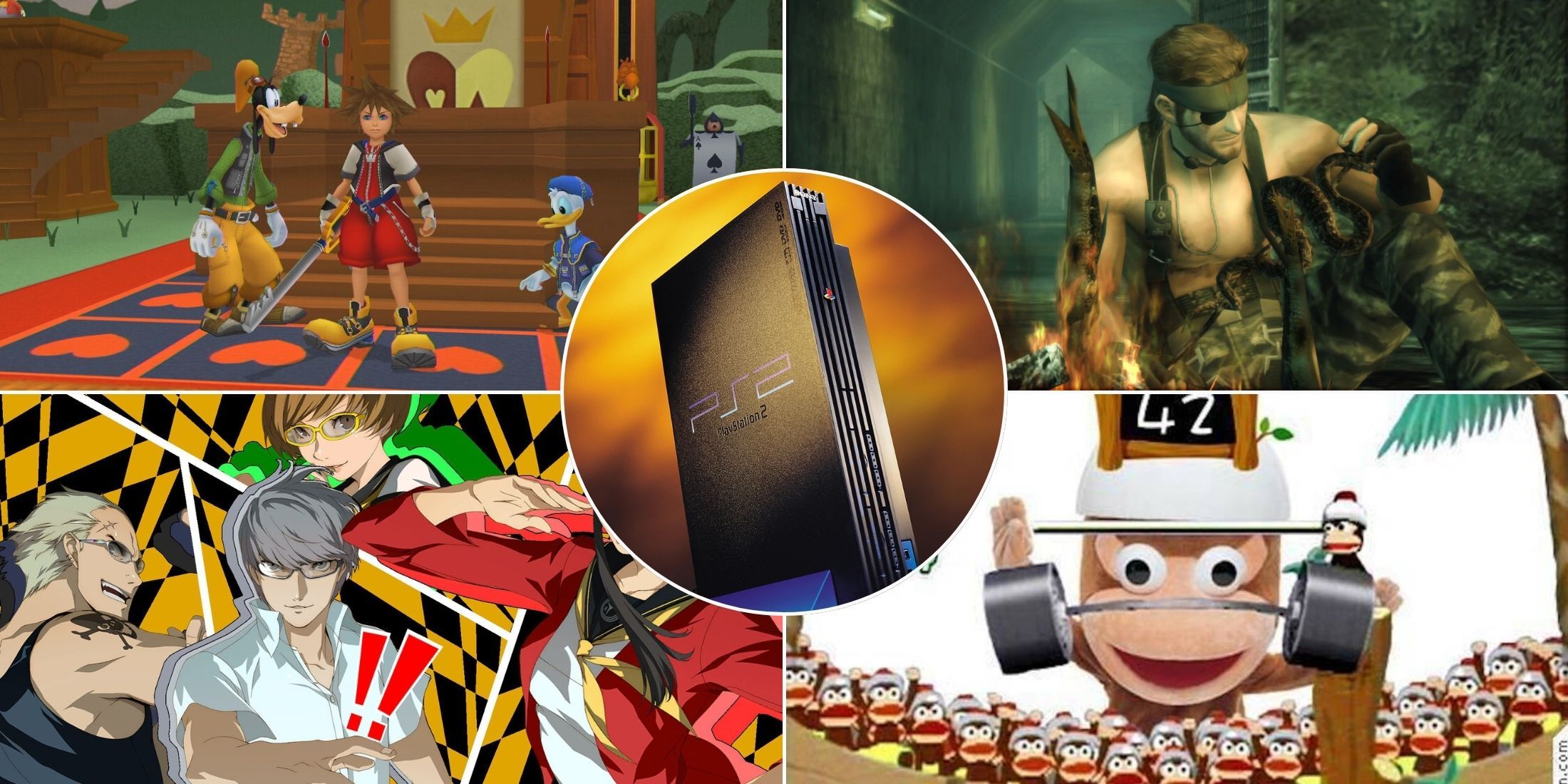Sony’s is not only the best-selling video game console in the history of the industry, but it’s also highly regarded by many as one of the best gaming systems ever created. This can be attributed to a number of different factors, like its huge catalog of excellent exclusives or its secondary function as a cheap DVD player that was especially useful for most families back in the day.
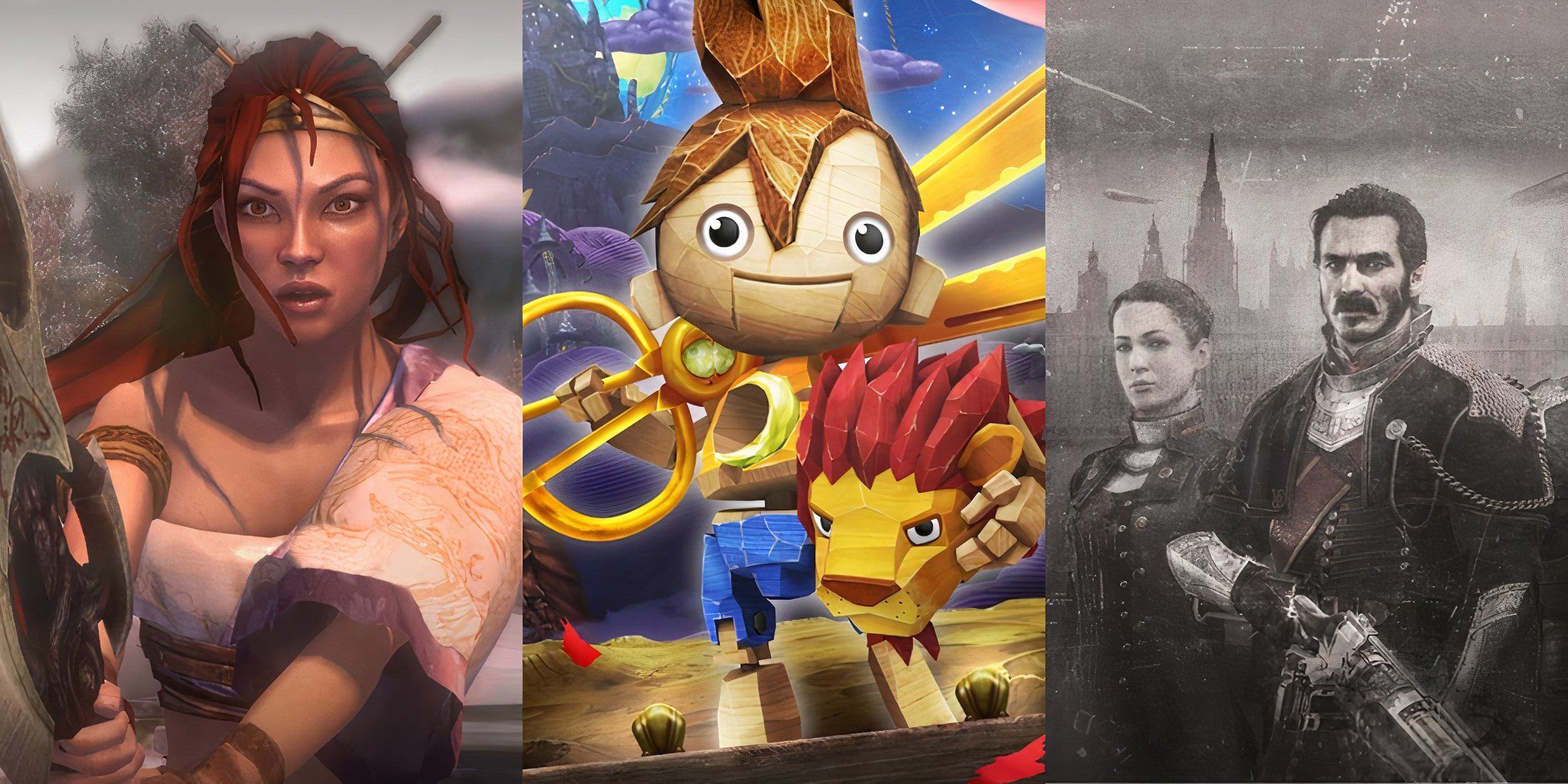
Related
8 PlayStation Games That Deserve A Critical Reappraisal
There are several underrated PlayStation games that need a critical reappraisal.
Of course, Sony Computer Entertainment has made excellent consoles before and after the PS2, but most of its fans believe that the company has never been able to surpass it, as there are things that this sixth-generation system does a lot better than both its predecessors and its three successors. There are a lot of examples to choose from, but the following eight perfectly explain why the PS2 is considered the best video game console Sony ever created.
There was definitely some solid variety in the PlayStation 1’s catalog, with a clear focus on 3D platformers and JRPGs. The PlayStation 3, 4 and 5 also had relatively diverse catalogs (especially when compared to their generational competitors), but most of their releases were hyperrealistic, third-person adventures with serious storylines, like Uncharted, God of War, Horizon or Spider-Man.
All five PlayStation consoles had great games, but the PlayStation 2 was the absolute best one in terms of variety, as it achieved a perfect balance between having mature and hyperrealistic games (like Killzone, Black or Grand Theft Auto), colorful 3D platformers (like Jak & Daxter, Ratchet & Clank or Sly Cooper), epic RPGs with ambitious narratives (like Final Fantasy 10, Kingdom Hearts or Persona 4) and even weird experimental titles that were not released on any other platform (like Ico, Gitaroo Man or Under the Skin). The PS2 truly had , meaning that every type of gamer could very easily find a high-quality video game of their preference to play on this console.
It’s very difficult to decide whether a PlayStation system “won” the console war in every generation they were a part of or not: The PS1 did extremely well, but the Nintendo 64 fought back with revolutionary 3D titles like Super Mario 64 or The Legend of Zelda: Ocarina of Time. The PS3, PS4 and PS5 had their fair share of as well, but they also shared many great games with their competition, as console exclusives have been slowly dying in the past decade. On top of that, the Wii and the Switch also had some amazing titles that most of Sony's offerings couldn’t really compete with.
But the PS2 was released in a very specific era in which Nintendo was struggling to make good system-sellers (even though the GameCube had a few legendary exclusives of its own) and Microsoft was just starting its career in the gaming industry, so it still didn’t have many exclusive IPs under its name. On the other hand, the PS2 has a massive collection of incredible and revolutionary video games that were not released on any of its competitors' consoles, like Shadow of the Colossus, Metal Gear Solid 3: Snake Eater, Kingdom Hearts, Devil May Cry 3: Dante’s Awakening, God of War, Grand Theft Auto: San Andreas and many more.
While titles like Metal Gear Solid 3: Snake Eater and Grand Theft Auto: San Andreas released on other consoles, the PS2 received them first.
As one of the first 3D gaming consoles in the market, the PlayStation 1 obviously had its fair share of releases (like Metal Gear Solid or Final Fantasy 7), but this trend slowly died down with the PS3, PS4 and PS5, which all obviously had excellent games, but very few of their exclusives can be considered game-changers for the entire industry.
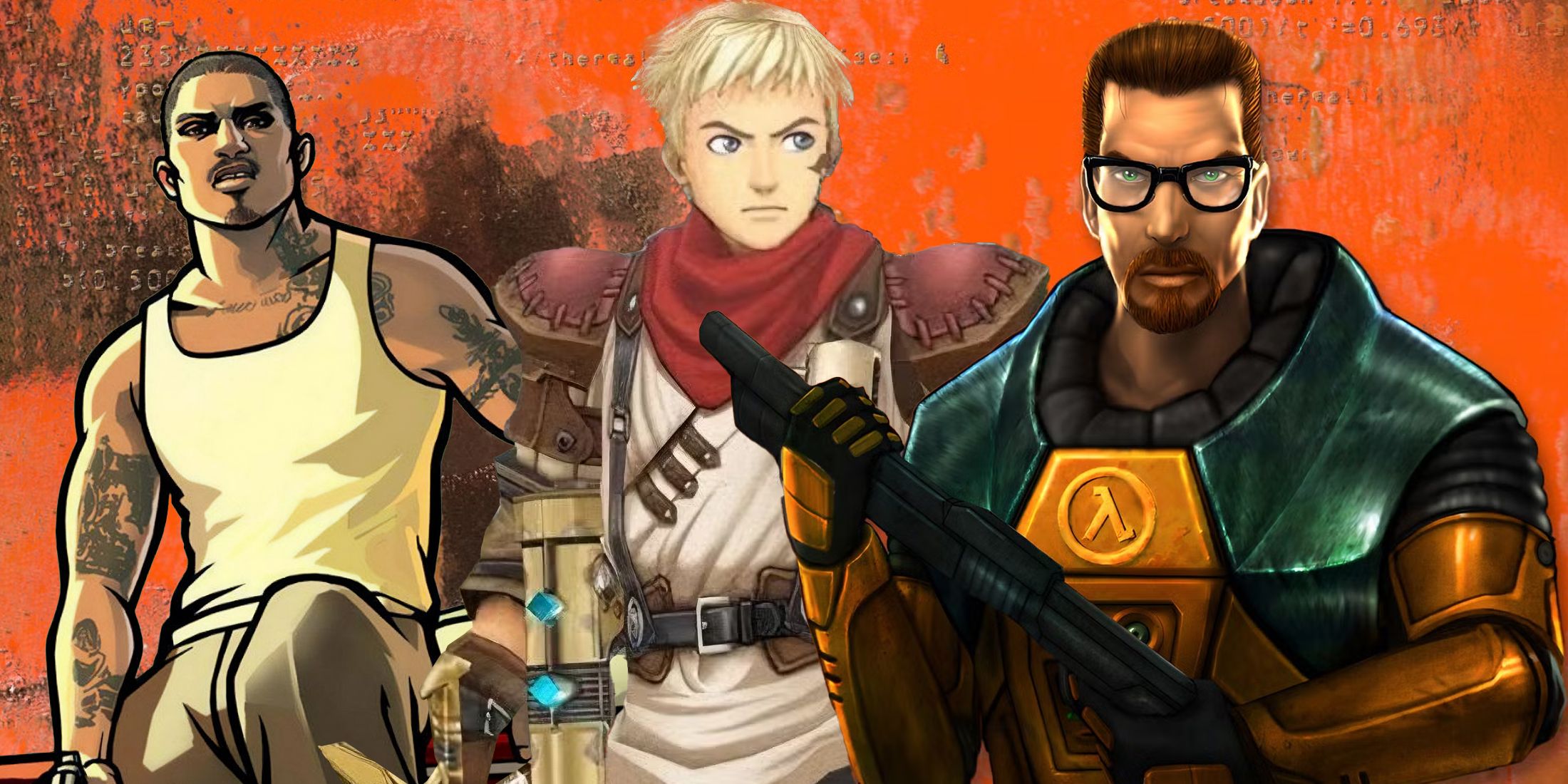
Related
8 PlayStation 2 Games That Were Technically Impressive
PS2 games like the Half-Life port, Rogue Galaxy, and Shadow of the Colossus pushed technical limits with physics, smarter AI and massive open worlds."
The PlayStation 2, on the other hand, had such an undeniable impact that the video game industry wouldn’t be the same without it today: Grand Theft Auto 3 completely redefined the open-world sandbox genre, Devil May Cry laid the foundation for the hack-and-slash genre, Metal Gear Solid 2 and 3 showcased ambitious storytelling on the same level as high-budget Hollywood releases, Shadow of the Colossus was a beautiful adventure that proved that legitimacy of video games as an artistic medium, etc.
Every single PlayStation console was (or, in the case of the PS5, it still is) the of many beloved gaming franchises that gained huge followings: the PS1 had classics like Crash Bandicoot or Spyro the Dragon, the PS3 had modern classics like Uncharted or The Last of Us, the PS4 had Horizon and Bloodborne, so on and so forth. But the PS2 was completely different, because it was not only the place where many classic Sony IPs were born, but also where many other legendary IPs by third-party studios were born.
When it comes to Sony-owned franchises, Ratchet & Clank, Jak & Daxter, Sly Cooper, God of War, and Killzone all had their first entries released on PlayStation 2. On top of that, multiple third-party studios kick-started many of their legendary IPs exclusively on this sixth-generation console, like Kingdom Hearts, Devil May Cry, Onimusha, Yakuza: Like a Dragon, Katamari, TimeSplitters, Monster Hunter, etc. Most of these franchises are still thriving to this day, and they all undoubtedly own their success to their humble origins on the PlayStation 2.
The original PlayStation was discontinued in 2001, meaning that it had a full lifespan of seven years. The PS3 was discontinued in 2006, so it lasted ten years, and while the PS4 still hasn’t been discontinued yet, it was clearly left behind by both Sony and other developers, so it can be estimated that it had a lifespan of roughly ten years. On top of all that, Sony has already mentioned several times that it has plans to release the PS6 in the near future, which means that the life of the PS5 will most likely end before it even reaches a decade.
But, with an incredible , the PS2 was the company’s longest-running and most fruitful console, seeing as it was discontinued in 2012, and it still received brand-new games until 2013. But this system not only stood out because it survived for way longer than its peers, but also because developers (including Sony itself) kept releasing high-quality games for it, even when the PS3 was already out in stores. Thanks to amazing late releases like Okami, God of War 2, and Persona 4, there was a moment in time in which consumers preferred to keep their PS2s instead of buying their next-generation successor.
The evolution of multiplayer has been nothing short of fascinating. The PS1 obviously had a lot of really fun games with simple local multiplayer and the PS3 lived through the massive boom of online connectivity, meaning that its users didn’t even need to be physically in the same room to play multiplayer games together, something that kept evolving during the following eras of the PS4 and the PS5. As always, this massive shift didn’t happen from one day to another, as there was a console generation that served as a bridge between the death of and the rise of , and the PS2 was released exactly at that moment.
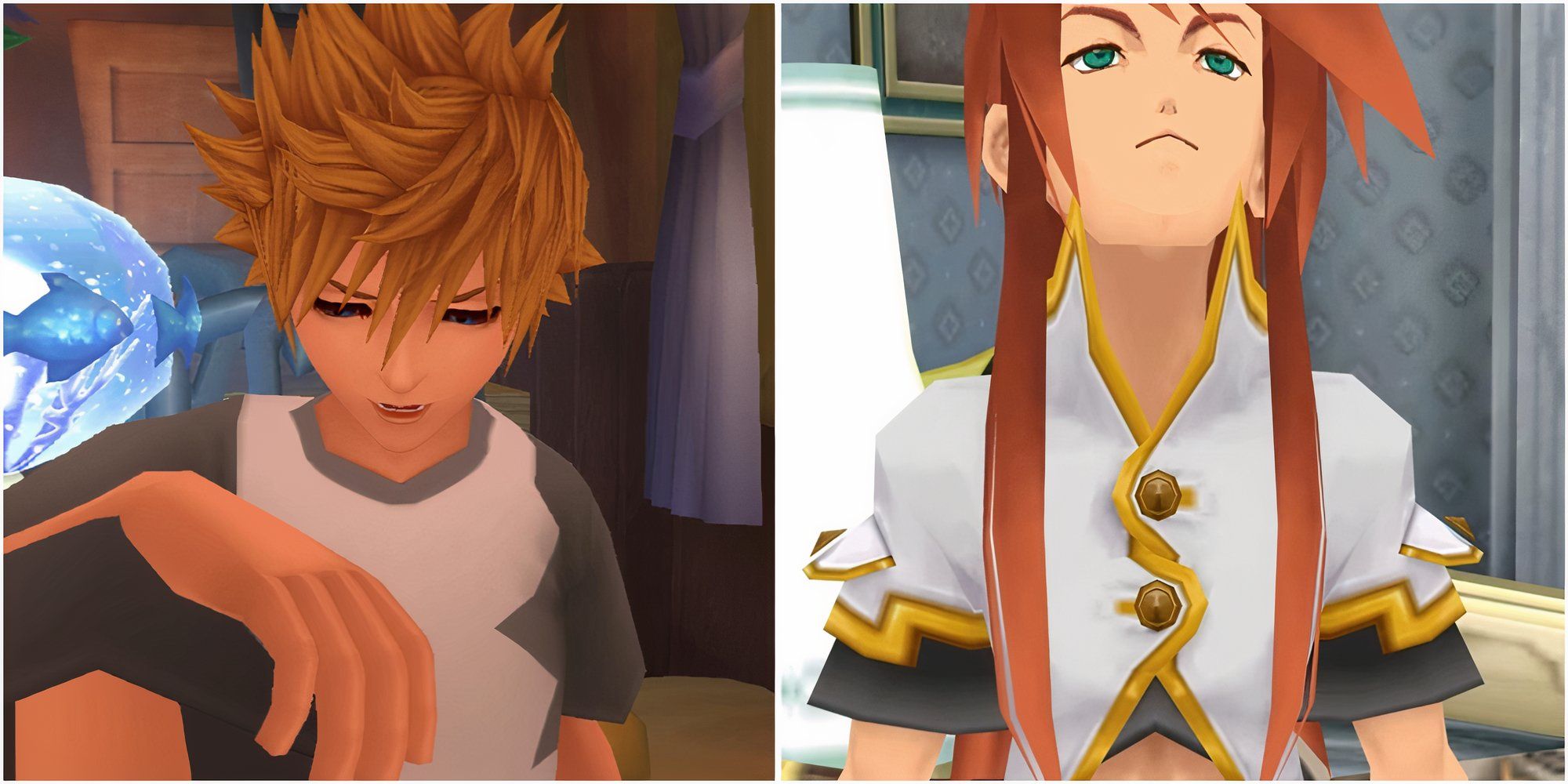
Related
8 Best PS2 Action JRPGs, Ranked
From Kingdom Hearts 2 to Tales of the Abyss, there's no shortage of thrilling and high-octane action in these JRPGs from the PlayStation 2 console.
This console had a lot of really fun exclusives that could be played with friends without the need for any internet connection, like TimeSplitters, Star Wars: Battlefront 2, Soul Calibur 2, or Dragon Ball Z: Budokai Tenkaichi 3. However, with the help of a network adapter, players could also connect to the internet in order to play games like Call of Duty 3, Final Fantasy 11, or Monster Hunter with other people from anywhere around the world. Truth be told, it was not the best connectivity out there (the Xbox had a much better service in comparison), but the PS2 still feels like the only Sony console on which offline and online multiplayer were equally viable options.
Accessories and peripherals for PlayStation consoles can be either hits or misses: the PS1 tried to follow the trends of its era by having so many different accessories that it ended up feeling oversaturated. On the other hand, the PS3 had just one prominent peripheral, the PlayStation Move controller, which is still highly regarded as one of Sony’s worst business decisions. After that, the PS4 and PS5 didn’t really release that many official accessories (aside from a few very useful controls meant for accessibility), since it mostly felt like they didn’t even need them.
But, as always, the PS2 struck a perfect balance in this regard, since it not only had many fewer released for it than its predecessor, but the few ones it had were actually very well-made: the Buzz! Buzzer was really fun to use with its titular game, the DVD remote controller was perfect for people who just wanted to use their PS2s as DVD players, and the EyeToy was surprisingly accurate at reading body movement, despite being a predecessor to more controversial devices, like the PlayStation Move or the Kinect.
There’s no denying that every single PlayStation console has been a commercial success for Sony: the PS1 sold 102.49 million units, the PS3 sold 87.4 million units, the PS4 sold 117.2 million units, and the PS5 sold 77.7 million units (and counting). All of them are currently placed among the top 15 best-selling video game consoles of all time, but only one has reached the top spot and managed to surpass three different Nintendo systems in the process.
With over 160 million units sold throughout its entire lifetime, the PlayStation 2 is famous for being the best-selling video game console of all time. The rest of the top 4 is dominated by Nintendo systems, like the Nintendo DS (154.02 million units sold), the Nintendo Switch (152.12 million units sold), and the Game Boy (118.69 million units sold), which are following it very closely. Of course, all other PlayStation consoles were still extremely profitable, but Sony has never been able to replicate this level of commercial success ever since.
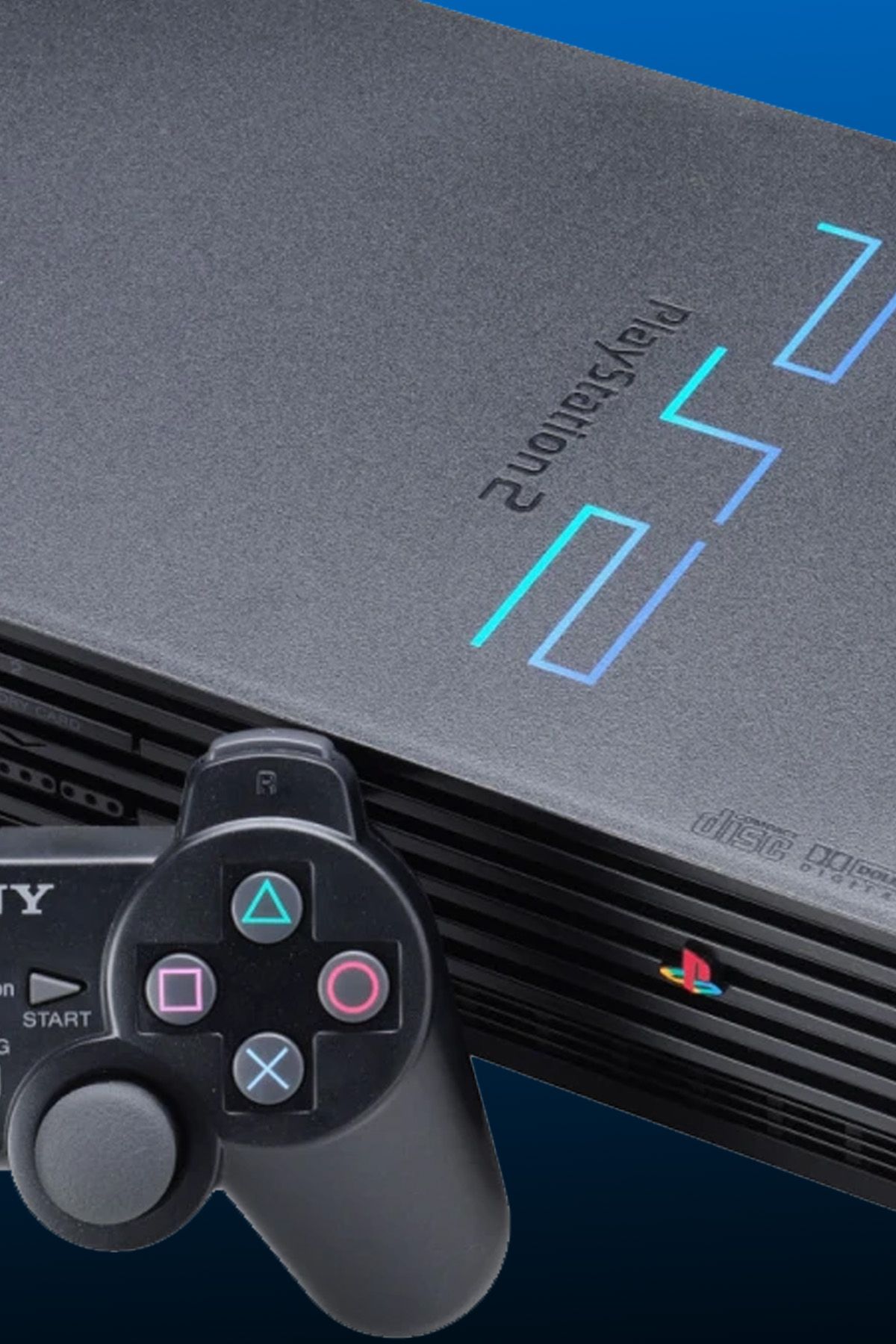
- Sony
- October 26, 2000
- PS2
- $299, £299
